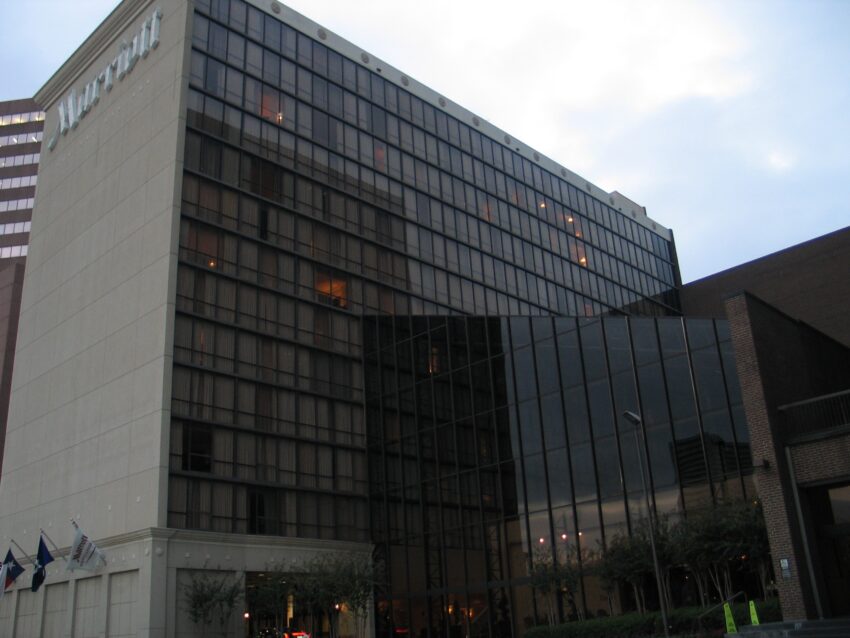Up to 95% of external hotel noise can be eliminated by using cost-effective soundproofing solutions that do not require major renovation
With peak travel season approaching for hotels, motels and inns, noise levels will also peak – due to the increase in street traffic/night life, aircraft roar, train/ship horn blare, and late-night pool parties – just as guests pay top dollar for the experience.
No matter how beautiful the surroundings or convenient the location, the constant noise can fray guests’ nerves and leave them angry and sleepless. If management is lucky, guests may only demand to change to a quieter room; if not, they may check out early, demand a refund, or leave scathing reviews about excessive noise on online review sites like TripAdvisor or Yelp.
To proactively handle the noise problem and ensure quiet, restful rooms that encourage repeat business and referrals, hoteliers are cost-effectively addressing the primary culprits of noise ingress – windows and patio doors – to cut external noise by as much as 95%, without replacement or major renovation. Because the solution also adds superior seals and insulation value, it can also improve comfort and reduce the heating/cooling portion of hotel energy bills by 15-30%, while maintaining the integrity of historic sites.
Replacement Windows
Multiple studies have shown that 90 percent of exterior noise enters through windows, not walls. Unfortunately, simply replacing the windows seldom adequately resolves the problem.
Double or triple pane windows, for example, filter out only slightly more noise than single pane, if any. Although effective at insulating from external heat or cold, these products are not truly engineered for soundproofing.
“With double pane windows, the two pieces of glass within the frame vibrate like the two tines of a tuning fork which actually creates more noise,” explains Randy Brown, President of Soundproof Windows, a national manufacturer of window and patio door soundproofing products. “Also, the air space for both double and triple pane windows does very little to retard the sound vibrations.”
Brown adds that much of the noise that enters through windows comes through leaking window seals. With age conventional window seals fail, so any partial relief experienced by replacing windows may be short-lived.
Fortunately, hospitality-specific soundproofing solutions exist that are able to reduce the noise ingress through windows and patio doors by as much as 95%, without replacement or major renovation.
Already utilized in thousands of rooms across North America, these cost-effective solutions in many ways still remain a “best kept secret.”
This is primarily because there is some confusion about the possible options, which can range from replacing double pane windows to inserting sheets of Plexiglas. Available from various window suppliers, these products have a limited ability to reduce exterior noise.
As a result, many owners and managers are instead turning to the soundproofing industry for solutions engineered for maximum noise reduction to deliver true peace and quiet.
True Soundproofing Technology
To cost-effectively soundproof guest rooms ahead of peak season, some hotels are turning to true soundproofing companies like Soundproof Windows, Inc. that have background and expertise engineering products used in the most noise sensitive environments in the world, like recording studios.
The company has created a “second window” that can be installed easily in front of the existing windows. The product is designed specifically to match and function like the original window, no matter its design or whether it opens or closes.
This inner window essentially reduces noise from entering on three fronts: the type of materials used to make the pane, the ideal air space between original window and insert, and finally improved, long-lasting seals. The combination can reduce external noise by up to 95%.
“The first noise barrier is laminated glass, which dampens sound vibration much like a finger on a wine glass stops it from ringing when struck,” explains Brown. “An inner PVB layer of plastic further dampens sound vibrations.”
Air space of 2-4 inches between the existing window and the Soundproof Window also significantly improves noise reduction because it isolates the window frame from external sound vibrations.
Finally, the company places spring-loaded seals in the second window frame. “This puts a constant squeeze on the glass panels, which prevents sound leaks and helps to stop noise from vibrating through the glass,” explains Brown.
Since external noise can also enter sliding glass doors, which are common on ground floor hotel rooms or upper level rooms with patios, similar soundproofing strategies can also be effectively applied in these applications.
Like the soundproof windows, a second sliding glass door can be added, but mounted either inside or outside an existing sliding glass door. This can eliminate up to 95% of external noise entering through the patio door.
Enhancing Comfort and Energy Savings
Soundproofing the windows of hotels, motels, and inns can also increase guest comfort by reducing drafts through the existing window seals while significantly reducing energy costs.
In fact, adding the second window provides an additional layer of insulation with better insulation values than the best low-e, argon gas filled double paned window. This can reduce heating/cooling loss by 77% or more for single paned windows. The added insulation stops unwanted air infiltration around and through window seals, and can reduce the heating-cooling portion of energy bills by 15-30%.
As an example, when the 11-story, 144-room Four Diamond Hotel in downtown Houston protected a number of its windows from external noise with Soundproof Windows, the energy savings were substantial.
A detailed one-year study showed the hotel saved $2.11 in energy savings per occupied room night. This amounted to 15.7% per occupied room night for an ROI of 22.6% over 4.37 years. The hotel has electric air conditioning, natural gas heating and dual pane windows. Energy use was tracked following installation from September 2007 thru August 2008, and compared to the same months of the previous year.
Because the soundproof windows do not replace or alter existing windows or patio doors, they have also been approved for use in historic hotels and have not been turned down by any historical authority. This helps such properties to maintain their historic character.
Whether hoteliers seek to protect their guests from stressful external noise intrusion, offer more peace, quiet and comfort, or significantly reduce heating-cooling related energy costs, economically soundproofing existing windows, rather than replacing them, can provide a real competitive edge through peak season and beyond.
For more information, contact Soundproof Windows, Inc. at 4673 Aircenter Circle, Reno, NV 89502; call 1-877-438-7843; email sales@soundproofwindows.com; or visit http://www.soundproofwindows.com

